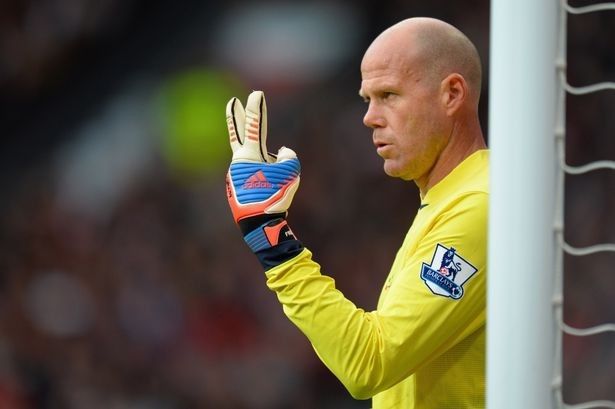
In recognition of Brad Friedel: The American dream in England
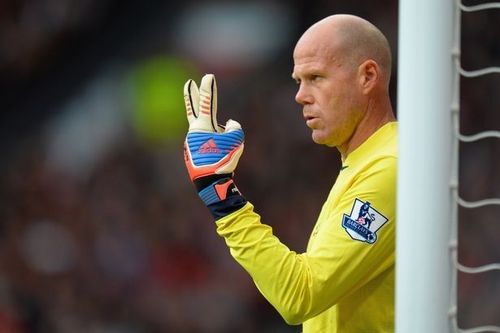
Evergreen, ageless, indefatigable – all manner of clichés have been thrown around to describe Brad Friedel. And yet, as a Premier League season kicked off without him for the first time since 1997, there is a feeling of dissatisfaction, the belief that these are empty words, a ritualistic fare of trite remarks brought out every time an athlete over 35 exits stage left.
It is a great disservice to the very essence of Brad Friedel to firmly push him to the sidelines before sprawling on the couch and cursing fluently when Thibault Courtois is sent off. A new season begins, the old one is forgotten, and with it, everyone who was a part of it.
Friedel was reliable, consistent and long lasting
Friedel is, by all accounts, a supremely popular character. A charming smile and a shaved head have characterised a professional who few, if any, have levelled unsavoury remarks at. His adroit goalkeeping has been matched by a blade of aggression essential to surviving, nay thriving, in the cut-throat world of football.
His start to life at the top commenced relatively late but he made up by soldiering on until he was 44. No matter how late one is introduced to the rigours of regular football, thus theoretically avoiding early burnout, to carry on into one’s mid-40s requires great determination.
Indeed, Friedel considers his longevity a product of good genes (for which he credits his mother) and a great respect for his body. He often kept pace with the head of the queue in training, and reportedly weighed less as a retired sportsman than he did over 20 years ago, while still in college.
Born in Ohio in 1971, Friedel grew up playing tennis and basketball, as well as football. He then went to UCLA, where football, and goalkeeping, became the primary focus of his life.
Friedel and football: Love at first sight
Brad Friedel is American (though his years in England have left him with a smooth hybrid accent) and proud of it. However, he has a very strong sense of affection for English football, describing it as ‘incredible’. The roots of this can be traced back to when Friedel was nine, and his father took him to watch the 1980 Charity Shield at Wembley. Terry McDermott scored for Liverpool as they overcame West Ham, and Friedel was seduced.
Unfortunately, his passion alone did little to engineer his dream move across the pond, coming, as he did, from a rickety professional structure in his homeland. He signed for the United States Soccer Federation (USSF) in 1994 in the meantime, as he sought to catch a flight east.
Work permits would, however, prove to be a constant menace. Friedel applied to Sunderland, Nottingham Forest and Newcastle United at various points in 1990s, but the permits were denied each time. The dream looked to have been scuppered.
Turkish delight
Graeme Souness threw Friedel a lifeline in 1995 when he brought the goalkeeper to Galatasaray. In retrospect, this is where Friedel’s career took a turn for the better, and Souness would prove to be Friedel’s constant in the coming years.
Friedel took to Istanbul like a duck to water. Living in a new country and vastly different Muslim culture was what Friedel described as the ‘best learning experience in my life’. Seeing the world was immensely beneficial, and the Turkish people were generally a hospitable breed. However, the football audience was a completely different proposition. They were intensely passionate, to the point of violence, and extremely demanding.
He recounts a particularly out of the blue experience in December 1995, when some fans slit a goat’s throat right in front of him, oozing blood everywhere. It was one of the frequent reminders of his position in the football cosmos. They did, however, respond positively to the American, chanting his name in his first home game.
The first trophy – and going back home
His time in Turkey was rewarding. For in the second leg of the 1996 Turkish Cup final at Fenarbahçe, Galatasary sealed a superb win. The crowd did not take too kindly to this, and began hurling missiles at the players, before climbing over the walls and rushing towards them.
The police had to hurry the Galatasaray players out of the stadium amidst a hail of bottles and stray fists. They got away, but manager Souness became a cult hero in Istanbul for his defiance; amidst all the chaos, he was seen cavorting around the pitch with a large Galatasaray flag. Friedel then spent a year at Columbus and, finally, at the age of twenty six, arrived the move that he had craved.
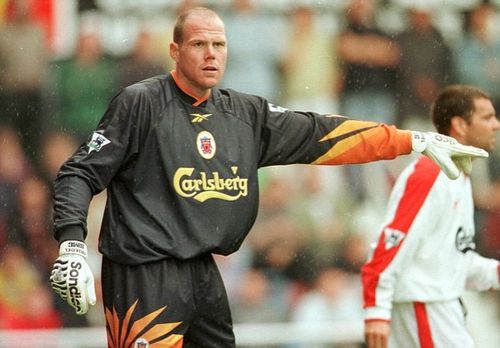
Dream come true as Friedel signs for Liverpool
Friedel signed for Liverpool in 1997, and his troublesome work permit was approved in December. It was what he had always dreamt of. But it quickly turned sour. Friedel began promisingly, but was mystifyingly sidelined in favour of the David James and Sander Westerveld. He left for Blackburn on a free transfer in 2000.
Given how Liverpool suffered a goalkeeping crisis for several years after the departure of Bruce Grobbelaar in 1994, one wonders if said crisis could have been averted had Liverpool given Friedel a fair crack of the whip. It was a decision that looked increasingly daft as the years went by. Friedel rejoined Souness at Blackburn, where they won promotion to the Premier League in 2000/01.
The peak years
It was then that Friedel’s career reached its zenith. Highlights included a League Cup victory over Tottenham in 2002, where Friedel was man of the match, and a 1-2 defeat of Arsenal at Highbury, where he was superb once more. He kept 15 clean sheets in 2002/03, and then created history at The Valley in 2004 when he became the second goalkeeper in Premier League history to score a goal.
In between, Friedel travelled to the 2002 World Cup. He was outstanding, saving two penalties en route to a quarter final against Germany. The USA charge ended there, but Friedel felt the result did not reflect the balance of play.
South of the border
Along the way, the USA had defeated Mexico for the first time at a neutral venue. The two neighbours share a rather storied relationship, and the football side of things also have a number of interesting tales.
Friedel names the Estadio Azteca in Mexico City as a favourite venue of his. A particularly important turning point in USA/Mexico football relations occurred there five years prior to the encounter at the World Cup.
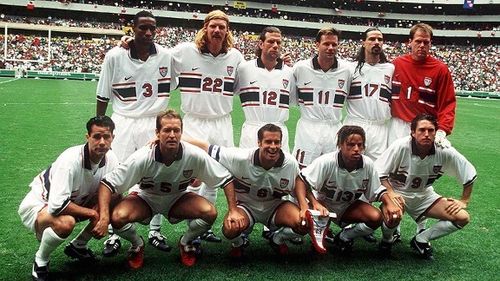
The hate for Americans is palpable south of the border, but a draw at the Azteca in 1997 after playing 58 minutes with a man down and in intensely trying conditions softened the stance of the Mexicans towards the USA somewhat. They were accepted as a ‘legitimate’ football nation by their neighbours.
Friedel stayed with Blackburn until 2008. His performances were consistent and often stellar – Liverpool came to Ewood Park on 26 December 2006 and Friedel thwarted the Merseysiders repeatedly, while Benni McCarthy scored to give them a 1-0 win. For context, the Reds won a total of ten games during the winter, divided on either side of the defeat at Ewood.
The Midlands and after
Aston Villa were looking to break in the Champions League when Friedel joined them in the summer of 2008. Friedel enjoyed working with Martin O’ Neill but the Villans, owned by Randy Lerner who also owned Friedel’s beloved Cleveland Browns, were unsuccessful.
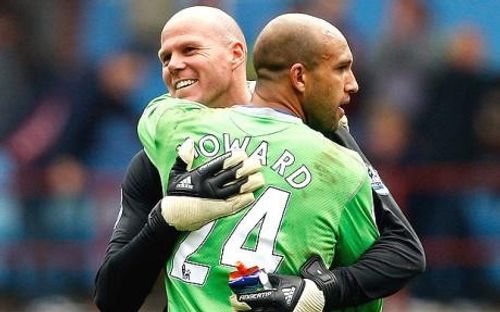
Friedel then joined Tottenham in 2011, where he began as first choice. Despite the arrival of the much vaunted Hugo Lloris in 2012, Friedel held on to his place in the side on merit. But all good things must come to an end. He was benched for a game against Aston Villa in October, ending a spectacular run of 310 consecutive Premier League games. The last time he missed a game was on 15 May 2004. Virtually the final act of a career that delivered so much despite a late start.
Friedel is an old school sporting character. Not surprising, given he expressed his preference for the sport as it was 10 years ago. The rising instances of diving and the increased strictness of referees spoiled his palate somewhat in recent years, but it is to his credit that he was able to adapt effectively.
He has been exploring new avenues since retirement: coaching, media and ambassadorial work. For the completion of licenses, he may have to visit England every now and again, but Friedel has left for home and probably will not come back for an extended period.
Friedel is, in many ways, as big a legend of the Premier League as Peter Schmeichel, David Seaman or Petr Cech. He may not possess the profile of those three, but he will hope that his was a career well done. Not just on the pitch, but also in terms of his popularity and the goodwill he created.
England will miss him.